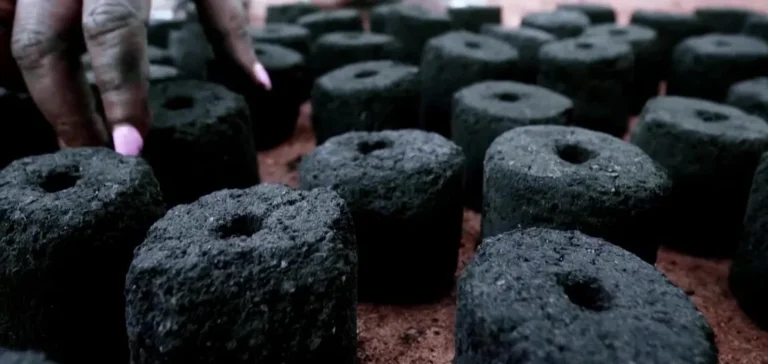The Cameroonian government will introduce, from 2026, a customs duty exemption on equipment intended for the industrial production of biofuels. This measure is part of the Compact énergie national, a strategic planning document presented as a state commitment for the development of energy infrastructure by 2030. The targeted equipment includes machinery used for the production of ecological charcoal, wood pellets, and biogas.
A regulatory framework to stimulate industrial supply
The exemption follows an investment incentive logic in a country where biofuels still represent only a marginal share of the national energy supply. According to data from the United Nations Development Programme (UNDP), 82.3% of Cameroonian households use wood as their main domestic energy source, while 30.6% rely on charcoal. In the Far North region, this dependency reaches up to 95%.
The announced customs policy aims to remove barriers to importing industrial technologies by facilitating the entry of machines and equipment necessary for the production of alternative fuels. It should allow operators such as Hygiène et salubrité du Cameroun (Hysacam), active in waste collection and treatment, to expand its biogas capture projects already operating in Douala and Yaoundé since 2013.
A sector to be structured around new standards
Local pellet production remains concentrated in the hands of a few companies, notably Compagnie générale des granulés SA, located in Akom I, 30 kilometres from Kribi. This company recycles residues from the forestry industry and claims a production capacity of 500,000 tonnes per year. The exemption regime could encourage the emergence of new players and strengthen the integration of the sector.
In the field of ecological charcoal, organisations such as Kemit Ecology in Douala still operate at an artisanal scale, transforming vegetable waste into biocharcoal. Also known as green charcoal, this fuel is made from carbon-rich agricultural or household residues and comes in the form of briquettes or balls. In 2023, the UNDP provided a production unit to a women’s association based in Maroua, illustrating the growing interest in this solution.
Towards regulation of an informal market
Cameroonian authorities are seeking to structure a market where supply remains fragmented and informal, by facilitating access to processing equipment. This regulatory approach aims to create the conditions for an industrial ecosystem capable of meeting the demand for alternative energy while reducing pressure on forest resources.
By implementing targeted regulation on the import of production equipment, Cameroon aims to attract capital and standardise practices in a sector in the process of formalisation. The effectiveness of this policy will depend on the private sector’s capacity to meet the technological demands and industrialise production processes.






















